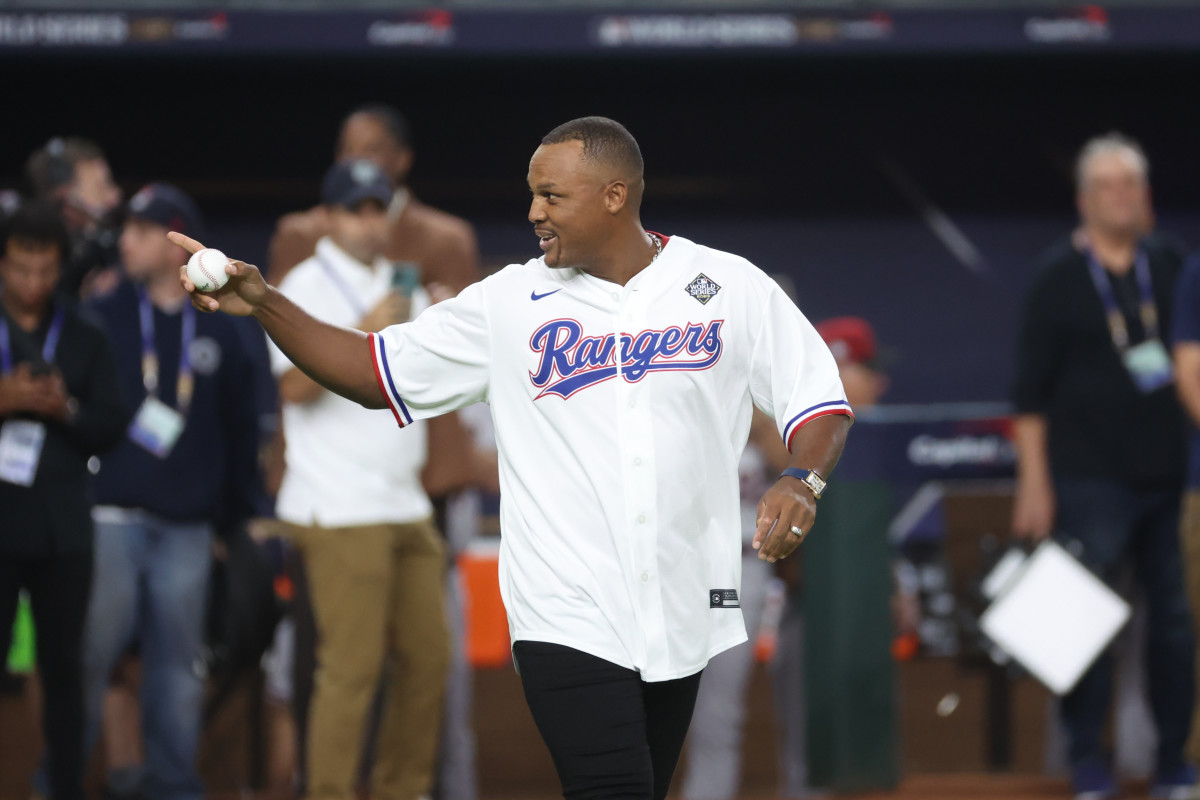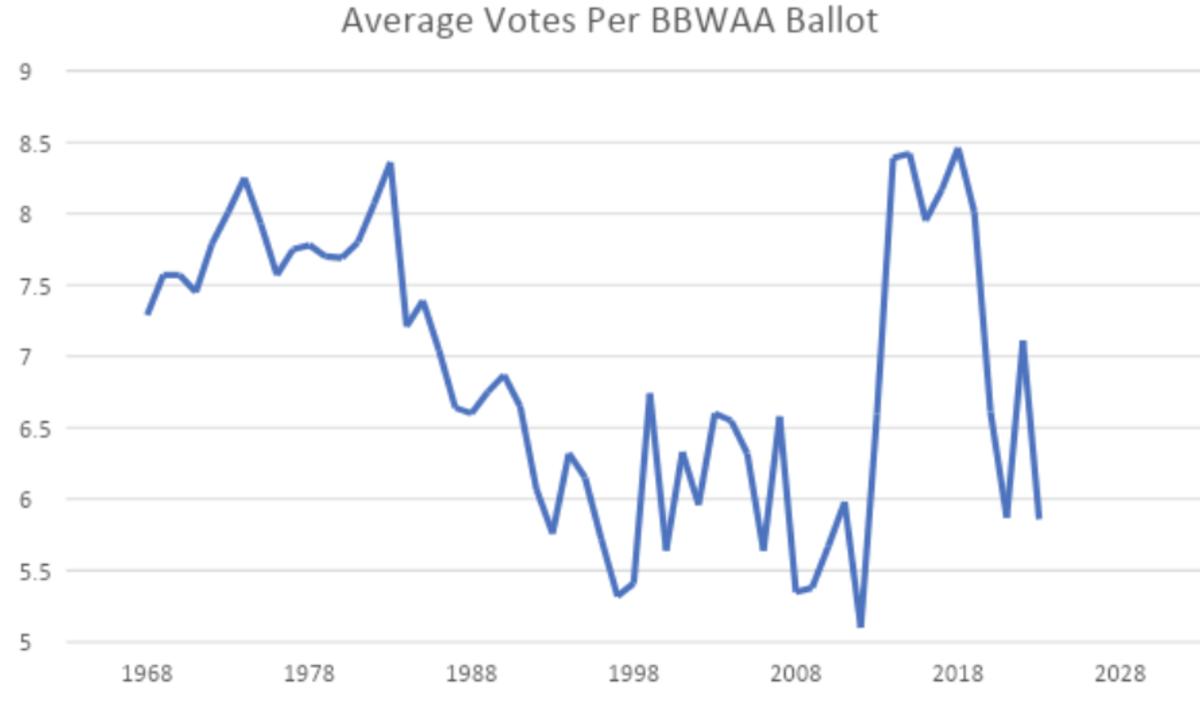Breaking Down Four Myths About Baseball Hall of Fame Voting
The Baseball Hall of Fame voting results will be announced Jan. 23. Adrián Beltré is a lock and could be joined by fellow first-ballot candidate Joe Mauer, while Todd Helton and Billy Wagner have the best chance among the returning candidates.
The voting doesn’t hold nearly as many surprises as it used to, thanks to many voters releasing their ballot before the actual announcement. Even so, it’s still the most democratic, debated and transparent process among sports halls of fame.

This is the 80th time writers will be voting on the baseball HOF. It is an opinion poll, not a scientific one. So, if your favorite candidate doesn’t get in, it must be because the time-tested process is flawed.
Such debates are fun, but too often are clouded in mistaken narratives. Here are the four biggest myths about Hall of Fame voting.
1. “The writers should be electing more players.”
The writers elected 24 players in the past decade, 26% more than in any of the previous five 10-year periods since current voting protocols were established in 1968. We will see two to four players elected next week and probably two or three more the year after. The numbers would be even higher if not for the roughly nine players who were connected to PEDs.
Hall of Famers Elected by BBWAA by Decade
2014–2023 | 24 |
|---|---|
2004–2013 | 14 |
1994–2003 | 14 |
1984–1993 | 19 |
1974–1983 | 15 |
1968–1973 | 8 |
You must remember how difficult it is to get into the HOF, especially via the writers’ ballot. Only 136 of the 270 players in the Hall were elected by the writers (50.3%). Until 2014, the writers elected an average of 1.62 Hall of Famers per year over their 69-ballot history. Since then, that average has climbed to 2.4, a 48% increase.
I have been voting for 31 years. I can tell you I have seen, in general, writers look much more favorably on borderline candidates than when I first began voting.
2. “The writers need a bigger ballot.”
Writers can vote for up to 10 players. A petition by the writers to expand the ballot a few years ago, during the “crowded ballot crunch,” was met with a lack of enthusiasm.
Voting for up to 10 players when only about two get elected has worked well. The average ballot over the 79-ballot history of the BBWAA includes only 6.89 names. The average has never been higher than 8.46 (2018) and never lower than 5.10 (’12).
Look at the annual average votes on the BBWAA ballot:

The high votes in the 1970s were due to still playing catchup, since the Hall did not begin until ’36. Five players on that first ballot were elected, but 42 of the 50 names on the first ballot eventually were selected to the Hall.
Even in 1969, only two players were elected, but a whopping 18 players on that ballot were eventually selected by the writers or a committee. More than ever—because the Hall has changed the cycles of so-called “era committees,” the successor to the Veterans Committee—baseball fans should think of the Hall as deploying a fluid, two-step process.
As for recent trends, you can see on the chart where we entered and exited the “crowded ballot crunch” (2014–19) and have since settled into voting patterns that are consistent with more than two decades of history before the crunch.
3. “Third base is underrepresented in the Hall.”
Beltré will become only the 10th third baseman elected by the writers to the Hall, the 19th to be selected overall. But he will be the third player at the position elected in the past seven castings (joining Chipper Jones and Scott Rolen). And honestly, who is being overlooked by this supposed “positional bias?” The third basemen with the highest WAR not in the Hall are, in order, Graig Nettles, Buddy Bell, Ken Boyer and Sal Bando—all really good players, but none did better than 25% of the vote when they were on the ballot. It’s time to retire this trope.
4. “The writers act holier-than-thou when it comes to PED use.”
First, two-thirds of the writers voted for Barry Bonds and Roger Clemens. two-thirds! Most writers believed they should be in the Hall. That’s just not good enough. It takes 75% of the vote to be elected. That’s been true for every player. If you’re good enough and play the game cleanly enough, you clear the bar, as have 136 players. Simple.
The problem for such players is that 75% of any voting body, not just writers, are unlikely to agree that the game’s highest honor should be bestowed on those who chose to play the game unfairly and illegally. What is stopping them is a violation of the most basic tenet of competition, fair play, not some ivory tower argument about moral character.
People who don’t like the results of an opinion-based election like to complain about the ineptitude of the writers, as if it is a monolithic body. Last year there were 389 writers who voted. That was down 33% from the all-time high 13 years ago, before the Hall culled the voting roll by tightening voting requirements. That’s still a very large sample size of individual opinion, and it is a similar comparison to the numbers in the 1960s and ’70s. Getting three-fourths of almost 400 individuals to agree on who deserves the highest honor is difficult—because it should be difficult. And yet next week, several more will pass the test.
